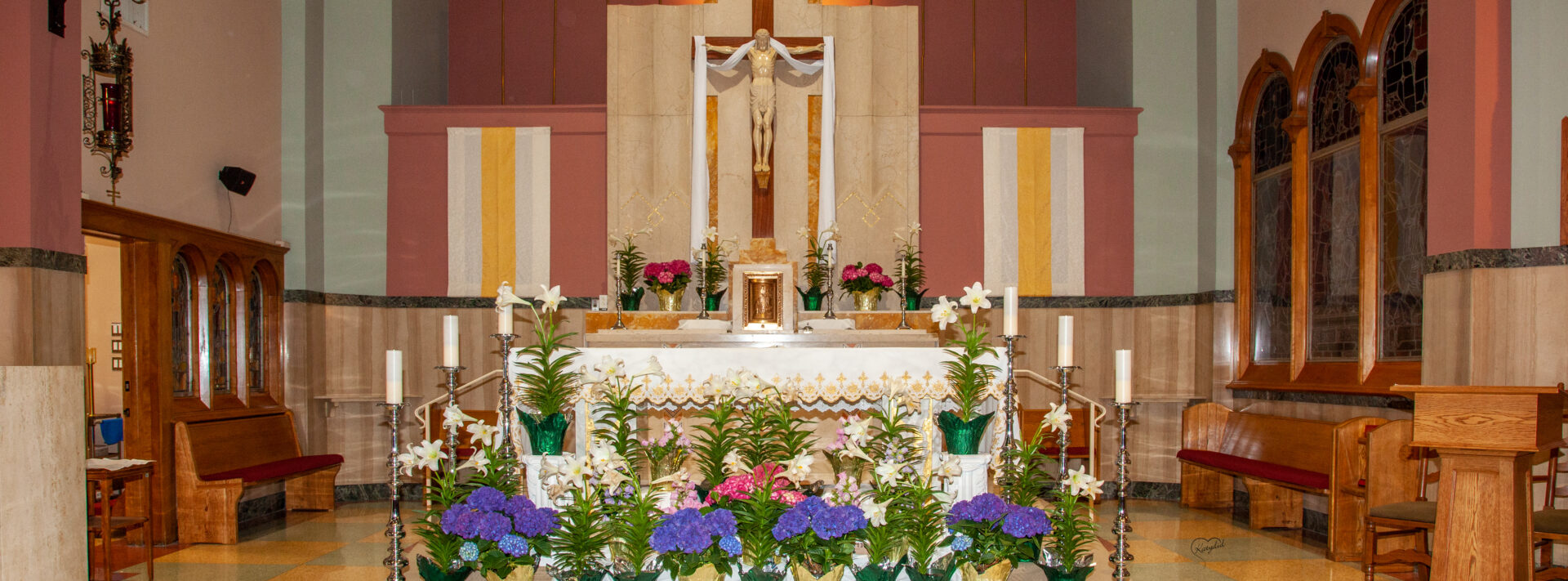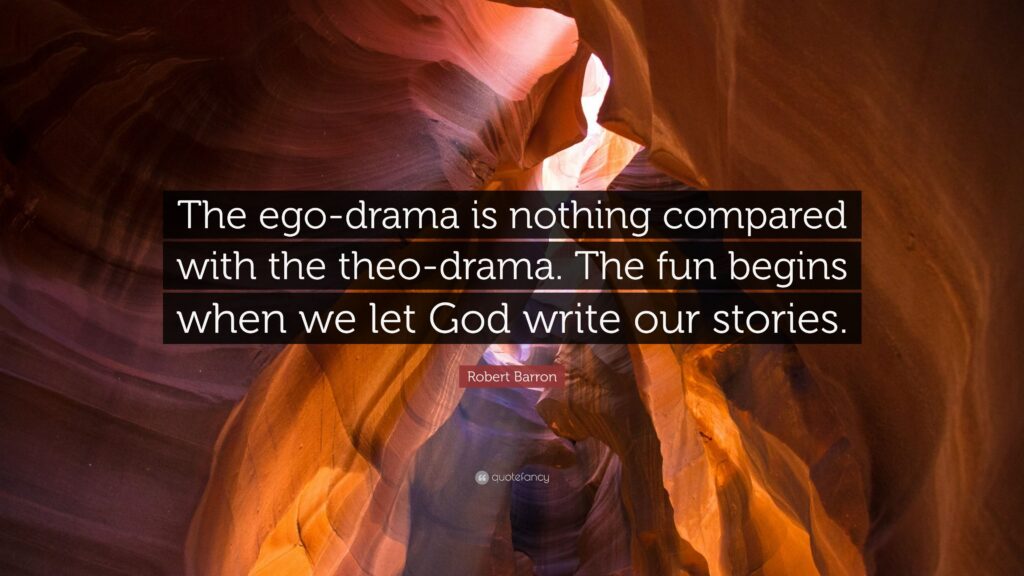Christ asks us through His message in today’s Gospel, “Which master do we serve: the Ego or God?” Jesus always praises the faithful servant who served his master in a theo-drama. I like what Bishop Barron says about the theo-drama. It is written and directed by God on the great stage that is the created universe and according to the prototype that is Christ. We are invited to “act”–to find and play our role in God’s theater, but there is a real temptation to participate in the ego-drama instead. As Bishop Barron points out, the problem is that the vast majority of us think that we are the directors, writers, and above all, stars of our own “ego-dramas,” with other people functioning as either supporting actors or villains.
The ego-drama is played throughout history. We see this with King David, one of the greatest Kings of all time. He started on the right track following God’s will. He defeated Goliath and united Israel, but then his passions got the best of him. He wanted someone else’s wife, Bathsheba, and he knew by God’s law that he could not have her as long as Uriah, his friend, was still alive. King David also knew that murder was wrong. To get what he wanted, he ordered Uriah to go to the front lines of the war so that his enemies would kill his friend. King David thought that he could trick God. As the old saying goes, he didn’t throw the snowballs, but he sure did make them. God doesn’t miss anything and punished David for his wrongdoing.
This same drama was played out with King Henry VIII. He no longer wanted to be married to his wife Catherine and wanted another woman to be his wife. He consulted with his advisors that represented the Catholic Church and they told him, no, that it was unlawful to divorce his wife. King Henry VIII did not like the word “no” to his passions. He then used his power and influence to manipulate God’s law to create a new religion, killing anyone who stood in his way. The Catholic Church in England was never the same.
Even this past week, we see the ego-drama versus the theo-drama in the story of Herodias and John the Baptist. On Monday, we celebrated the feast day of the Martyrdom of St John the Baptist. In the Gospel of Mark chapter 6, we hear Herodias was so invested in her ego-drama that she used her manipulation tactics to get John the Baptist’s head on a platter. She manipulates her daughter, Herod, and ultimately Israel to try and stop the Good News of God. She didn’t like John the Baptist’s message and saw him as an obstacle to her anticipated achievements. Like the enemy of our soul, Herodias stopped at nothing to prevent the movement of Herod’s heart towards God’s truth and life. She was vigilant, always looking for opportunities to further her ambition, which caused the death of John the Baptist.
Dramas are part of our lives. We see it in sports, in movies, in books, in the Bible, and we see it within ourselves. We cannot escape it. Which dramas are we participating in? The ego-drama or the theo-drama? King David, a sinner like us all, goes back and forth on which master he wanted to serve, his ego or God. Fortunately, King David repented of his wrongdoing and we today have the Sacraments and confession to repent of times we have followed the wrong master.
God does not give up on us. He never tires of inviting us back when we fall. One of God’s greatest gifts is that he is always faithful to his promises. No matter how far we think we have fallen from him, He still has a role for us to play to help advance his new creation. To find the role that God has designed for us is a great adventure in itself, even if our part looks small. Sometimes in a lengthy novel, a character who has seemed minor emerges as the hinge around which the entire narrative turns. When we de-center the ego and live in an exciting and unpredictable relationship with God, we realize very clearly that our lives are not about us. That is a liberating discovery.

